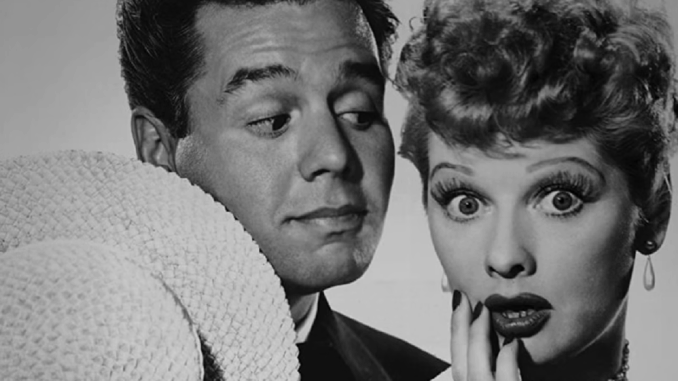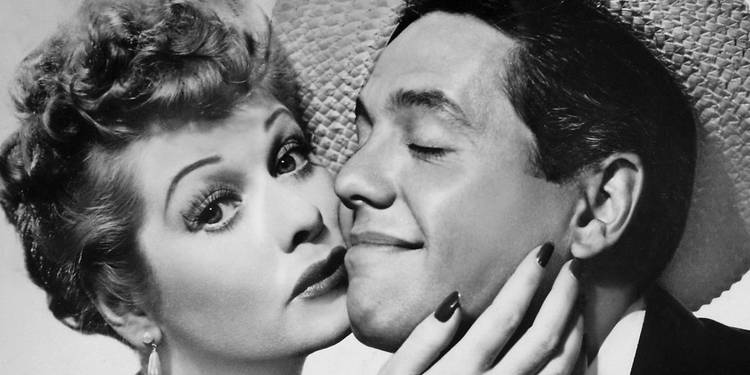
Lucy and Desi was just one of many celebrity-focused documentaries that debuted on streaming services, which has made it hard to distinguish them in terms of quality. Although there are certainly recent celebrity docs like Sly or aka Charlie Sheen, that seek only to lionize their subjects, Poehler took a meticulous approach to showing how radically I Love Lucy changed American culture and how the show was able to be at the forefront of progressive movements. While generations of viewers grew up with “Lucy and Desi” as characters on their favorite show, Poehler’s films suggest that there was a lot of truth within the performances by Ball and Arnaz.
‘Lucy and Desi’ Shows the Private Lives of Hollywood’s Most Famous Onscreen Couple

Although there’s obviously a lot of attention paid to the inception of I Love Lucy, Lucy and Desi sought to explain why the notion of seeing this pair on television was such a significant change of pace for the entertainment industry. Lucy and Desi examines how bigotry made it challenging for Ball and Arnaz to put themselves at the center of a show; not only did senior executives within the industry believe that “women aren’t funny,” but they refused to think that audiences would be interested in seeing a mixed-race couple as the embodiment of the idealistic American family. Ironically, the success of I Love Lucy was that it took advantage of scenarios that a vast majority of its audience could relate to, such as balancing work and family life, considering raising a family, and dealing with financial setbacks. While the show employed some of the finest writers in comedy at the time, much of its success came from how authentic it was to have a real couple playing versions of themselves. In order to convey how groundbreaking this was, Poehler assembled interviews with many influential television icons, including Carol Burnett, Bette Midler, and Norman Lear.
Poehler was keen to point out how the show made decisions that were surprisingly controversial at the time that I Love Lucy was on the air; the suggestion that Lucy and Desi would sleep in the same bed even incurred some backlash from network executives. However, Poehler shows how the style of comedy in I Love Lucy impacted all future sitcoms, including her own work on Parks & Recreation. The implementation of a strong laugh-to-minute ratio was critical in keeping the audiences hooked, as was finding just the right moment to land a punchline. Films that explore the perils of being an artist can often be quite negative in their depiction of the industry at large, but Poehler also showed the joy that Ball and Arnaz took from their show, and why it meant so much to them that I Love Lucy had connected with fans across the nation.
‘Lucy and Desi’ Benefits From Amy Poehler’s Experience With Television
Lucy and Desi examine the various challenges that the show faced due to conservative backlash, conflicts with advertisers, and the economics of television, but it suggests that the integrity of Ball and Arnaz’s relationship helped them make it through tough times. Poehler made the smart choice to differentiate the characters that Ball and Arnaz were playing on television and their real personas, as conflicts within the show often spilled over into reality; Arnaz often felt undermined, as his wife had earned more fame from their work. However, the strength of Ball and Arnaz’s mutual faith in one another’s abilities as artists is quite inspiring, especially when compared to the last several decades of celebrity culture. It’s often that a documentarian inserts a more saccharine touch on the material, but Poehler’s approach to Lucy and Desi was effective because she largely allowed Ball and Arnaz to speak for themselves through archived content.
Although debuting shortly after the divisive response to Being the Ricardos certainly made Lucy and Desi feel more focused and considerate in comparison, the film was also able to address the dramatic shifts within entertainment in recent times. Lucy and Desi examine why having a monoculture event like I Love Lucy is important to society, as it allows entertainment fans of different backgrounds to share something they are passionate about. Poehler puts a fine point on the work that both Ball and Arnaz did to advance entertainment in the industry, and even implies that they may have been partially responsible for her own career. Many future artists saw themselves represented on screen for the first time with I Love Lucy, and Lucy and Desi encapsulate that same sentiment.
